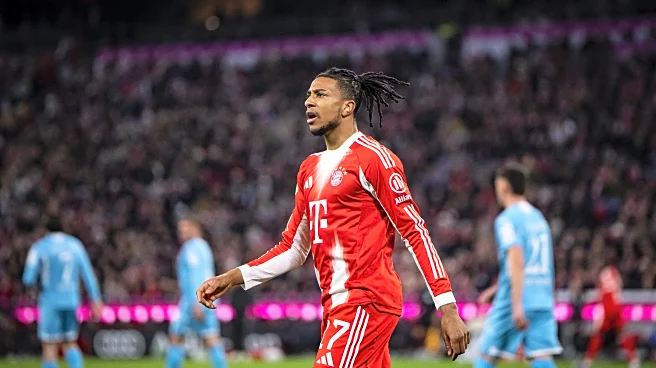What is the story about?
What's Happening?
West Ham United has dismissed head coach Graham Potter after a disappointing start to the Premier League season, with the team currently positioned 19th in the league standings. Potter, who took over from Julen Lopetegui in January, was unable to improve the club's fortunes, leading to his departure after just nine months. The club announced that Nuno Espirito Santo is set to replace Potter, with expectations that he will take charge of the team against Everton. Potter's tenure saw West Ham win only six out of 23 Premier League games, and the club's performance has not met the board's expectations, prompting the decision for a managerial change.
Why It's Important?
The sacking of Graham Potter is significant as it highlights the challenges faced by West Ham in maintaining competitive performance in the Premier League. The club's decision to appoint Nuno Espirito Santo reflects a strategic move to stabilize their position and potentially improve their standing in the league. This change could impact the team's dynamics and performance, influencing their chances of avoiding relegation. The managerial shift also underscores the pressures faced by football clubs to deliver results and the swift actions taken when expectations are not met.
What's Next?
Nuno Espirito Santo is expected to take over as head coach, with his first match likely against Everton. His appointment brings questions about whether his style of play will suit West Ham's current squad. Nuno's previous success with counter-attacking football may require adjustments to the team's strategy and player roles. The immediate focus will be on improving West Ham's defensive capabilities and securing points to move out of the relegation zone. The club's management and fans will be closely watching Nuno's impact on the team's performance in upcoming matches.
Beyond the Headlines
The managerial change at West Ham could have broader implications for the club's long-term strategy and player development. Nuno's approach to football may influence recruitment decisions and training methodologies, potentially leading to shifts in the club's playing style. Additionally, the change may affect team morale and fan engagement, as supporters look for signs of improvement and stability. The decision to replace Potter also reflects the competitive nature of the Premier League, where clubs must adapt quickly to maintain their status and financial viability.















